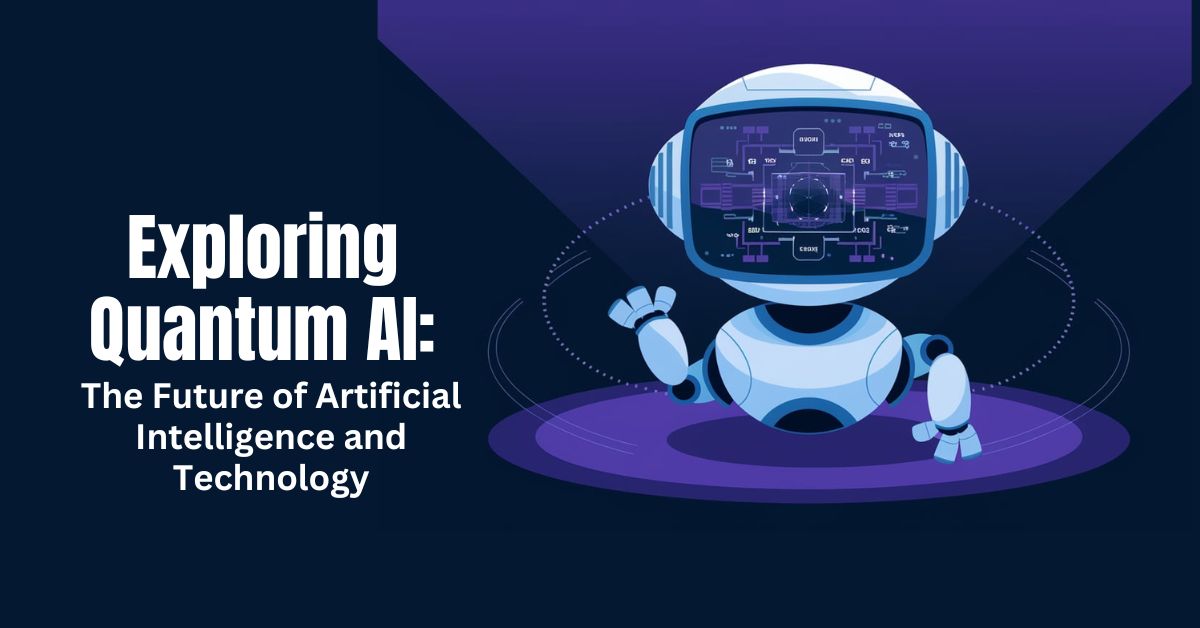What is Quantum AI?
In a rapidly evolving technological landscape, terms like “Quantum AI” have captured the imagination of scientists, technologists, and enthusiasts alike. But what exactly is Quantum AI, and why is it causing such a stir? This emergent technology holds the promise to fundamentally reshape our understanding and application of artificial intelligence (AI) like never before. With both quantum computing and AI being two of the most exciting technological frontiers, their combination—Quantum AI—is set to unlock unprecedented capabilities. As curiosity surges around this intriguing topic, more people are searching for answers to the question: What is Quantum AI?
Understanding Quantum Computing
To grasp Quantum AI, we must first understand its foundation—quantum computing. Quantum computing is a revolutionary form of computing distinct from classical computing. In classical computers, the basic unit of information is a bit, which can be either a 0 or a 1. Quantum computers, however, use qubits, which can exist simultaneously as 0 and 1 due to a phenomenon known as superposition.
Another quantum concept, entanglement, allows qubits that are entangled to instantly affect each other’s state, regardless of the distance separating them. This enables quantum computers to process a vast number of possibilities concurrently, offering tremendous computational advantages. Because of these properties, quantum computers have the potential to solve complex problems much faster than classical computers.
Quantum computing’s most promising advantages include solving certain types of mathematical problems exponentially faster, optimizing complex systems, and simulating quantum physics experiments with high accuracy. These capabilities are why the fusion of quantum computing and AI is seen with such excitement.
The Fusion of Quantum Computing and Artificial Intelligence
So, how does quantum computing merge with artificial intelligence to create Quantum AI? AI’s power lies in its ability to learn from data and make decisions or predictions. Traditional AI methods like machine learning rely heavily on algorithms that can process vast amounts of data to recognize patterns and gain insights. However, these methods are often limited by the computational power of classical computers.
Quantum AI integrates quantum computing’s unparalleled processing ability with AI algorithms to enhance these capabilities. Imagine training AI models on extensive datasets exponentially faster and with reduced power consumption. This potential is the core allure of Quantum AI, which can unlock new AI applications, from more effective drug discovery to real-time optimizations in traffic management.
Realworld explorations of Quantum AI are already underway. For instance, companies like Google are researching quantum-accelerated machine learning processes, while IBM is exploring quantum solutions for complex data interpretation.
The Future Implications of Quantum AI
The implications of Quantum AI extend across numerous industries, offering transformative potential. In healthcare, Quantum AI could lead to breakthroughs in precision medicine and genetics by discovering new correlations in complex datasets that are currently indiscernible. Financial sectors might see faster, more accurate predictive modeling, risk assessment, and fraud detection.
Moreover, Quantum AI could revolutionize logistics by optimizing supply chains and routing logistics more efficiently, thus reducing costs and environmental impacts. The technology’s unprecedented problem-solving capabilities and data processing possibilities signal a future where AI systems are vastly more capable and powerful.
However, such potent technology also raises ethical considerations. As Quantum AI continues to develop, questions around data privacy, job displacement, and the digital divide grow increasingly relevant. Ensuring equitable access and aligning the technology with human values remains a critical challenge.
Current Advances and Research in Quantum AI
As with any cutting-edge technology, advancements in Quantum AI require staying abreast of the latest research and development. Significant breakthroughs have been made by leading companies and institutions, such as Google, IBM, and Microsoft, as well as academic institutions like MIT and Stanford University. These research bodies are pioneering efforts to build practical quantum computers and develop Quantum AI applications.
Collaboration between tech giants and research institutes has led to milestones, including Google’s Sycamore quantum processor reaching “quantum supremacy,” where a quantum device performed a task unattainable by classical computers within a reasonable timeframe. Meanwhile, IBM’s Q System One offers cloud-based access to a quantum computer, facilitating further research and application of Quantum AI.
These ongoing endeavors highlight the concerted effort within the scientific community to overcome existing limitations and harness Quantum AI’s full potential.
Challenges and Limitations
Quantum AI, while promising, is not without its challenges. Technical and theoretical barriers persist, such as maintaining qubit stability, error rates, and the complexity of implementing quantum algorithms in real-world scenarios. Current technology limitations also include the high cost of quantum computing infrastructure and limited accessibility for widespread research and development.
Efforts to overcome these challenges include enhancing qubit coherence times, improving quantum error correction, and developing hybrid classical-quantum algorithms to bridge the gap between current capabilities and desired Quantum AI applications. Research institutions and industries are investing heavily to overcome these barriers and pave the way for a Quantum AI-powered future.
Quantum AI in Media and Popular Culture
Like any groundbreaking technology, Quantum AI has captivated popular culture. From novels exploring futures shaped by powerful AI systems to movies depicting the ethical dilemmas of advanced computing, Quantum AI has inspired a spectrum of media. Examples include films like “Transcendence,” which explore the concept of AI beyond current technological boundaries.
These portrayals reflect public fascination but also reveal misconceptions. While media often sensationalizes Quantum AI’s capabilities, it is crucial to understand that the technology is still in its infancy, with practical applications years ahead. Addressing these perceptions with accurate information is essential for informed public discourse on Quantum AI.
Conclusion: The Road Ahead for Quantum AI
Quantum AI stands on the precipice of groundbreaking advancements, promising to redefine the landscape of artificial intelligence and numerous industries. The excitement around its potential is palpable, with researchers and companies exploring its possible applications in detail. As we look to the future, the pursuit of Quantum AI will undoubtedly lead to innovative solutions to some of society’s most complex problems.
However, it is equally important to proceed with caution, ensuring ethical considerations guide the development and deployment of Quantum AI. The road ahead is both challenging and exhilarating, as Quantum AI offers unprecedented opportunities for discovery and progress.
Stay Updated on Quantum AI
As Quantum AI continues to evolve, staying informed about the latest breakthroughs and discussions is crucial for anyone interested in its development. Follow trusted sources, subscribe to newsletters, and engage with experts through social media to stay updated on this revolutionary technology. Together, we can navigate the exciting journey of Quantum AI into the future.







